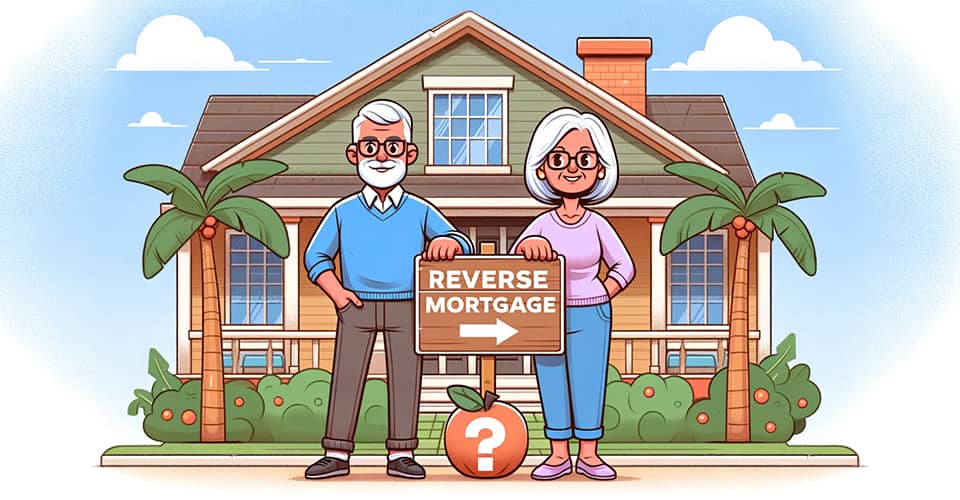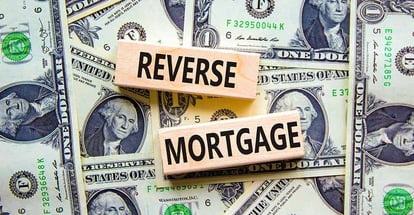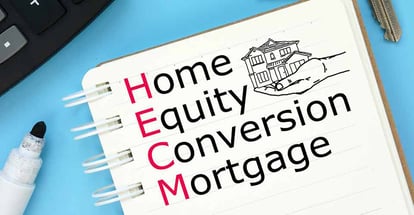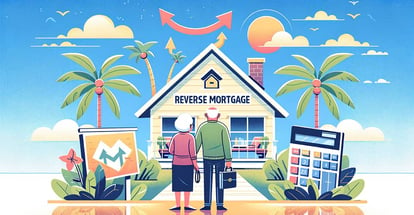Reverse Mortgages 2025: What’s New and How It Affects You
Reverse mortgages are changing in 2025, offering more options and better protections for homeowners.
With higher borrowing limits and new rules to help borrowers, reverse mortgages are becoming easier to understand and safer to use.
Verify Your Reverse Mortgage Eligibility
This guide answers common questions and explains the important updates for 2025.
In this article (Skip to...)
What is the new lending limit for 2025?
Starting January 1, 2025, the lending limit for federally-insured Home Equity Conversion Mortgages (HECMs) will increase to $1,209,750, up nearly $60,000 from the 2024 limit of $1,149,825.
This higher limit allows homeowners with higher-value properties to access more funds through a reverse mortgage.
Verify Your Reverse Mortgage Eligibility
What are the enhanced 2025 protections for reverse mortgage borrowers?
HUD has introduced new rules in 2025 to help you stay in your home and avoid foreclosure if you're facing financial challenges.
Repayment Plan Changes
You can now use repayment plans even if you owe a larger amount or have unpaid HOA or condo fees.
This makes it easier to catch up on missed payments without immediately risking foreclosure.
At-Risk Extension
If you are over 80 and have serious health issues, you can delay foreclosure for as long as you live in your home.
You no longer have to renew this extension every year, giving you more peace of mind.
Flexible Arrears Management
If you owe less than $5,000 in property charges like taxes or insurance, your servicer can help you catch up without calling the loan due.
This flexibility keeps your reverse mortgage active while you get back on track.
What are Enhanced Cash-for-Keys incentives?
As of March 25, 2024, mortgage servicers can offer higher "Cash-for-Keys" incentives to borrowers or heirs who choose alternatives to foreclosure.
- Up to $7,500, plus an extra $5,000 for probate costs, is available for deed-in-lieu of foreclosure or short sales.
- Up to $7,500 is offered for avoiding eviction after foreclosure.
These incentives help ease financial strain and provide smoother transitions for families.
Verify Your Reverse Mortgage Eligibility
What homes qualify?
Homes that qualify for a reverse mortgage include single-family houses, multi-unit properties (up to four units), condos, townhouses, and manufactured homes built after June 1976.
Co-ops do not qualify.
Eligibility also depends on your age, home equity, and ability to maintain the home and pay taxes and insurance.
Beyond the type of property, other factors play a crucial role in your eligibility for a reverse mortgage. These include your age, the equity in your home, and your ability to upkeep the property and keep up with property taxes and insurance payments.

What are the special requirements?
To qualify, you must be 62 or older and own a home with sufficient equity.
There are no health-related requirements, so anyone meeting the age and equity criteria can apply.
Lenders will review your ability to pay property taxes and homeowner’s insurance. If they have concerns, they may set aside part of the loan to cover these expenses, ensuring you can meet your financial obligations.
Verify Your Reverse Mortgage Eligibility
Can you get a reverse mortgage with an existing mortgage?
Yes, you can get a reverse mortgage even if you still owe money on your home.
The reverse mortgage must be the primary lien, so your existing mortgage must be paid off. You can do this with savings, help from family, or the reverse mortgage funds.
For example, if you owe $100,000 and qualify for $125,000, you can use $100,000 to pay off your current loan and keep $25,000 for other needs.
Remember, you’ll still need to pay property taxes, insurance, and maintain your home after getting a reverse mortgage.
Does a reverse mortgage affect Social Security or Medicare?
No, a reverse mortgage does not affect Social Security or Medicare benefits, as they are not based on income or assets.
However, it can impact Medicaid or SSI. Reverse mortgage funds must be used immediately; leftover funds in the next month count as assets.
For example, if you get $4,000 and spend it in the same month, your benefits are safe. But if any funds remain, and your total assets exceed $2,000 (individual) or $3,000 (couple), you may lose eligibility.
Consult a Medicaid expert or local agency to avoid issues and make the best decision for your situation.
Verify Your Reverse Mortgage Eligibility
What are the reverse mortgage payment options?
Reverse mortgages offer four payment options:
- Lump sum: Get all funds at once, useful for paying off a mortgage, medical bills, or large purchases.
- Tenure: Receive monthly payments as long as you live in the home.
- Term: Get monthly payments for a set period to meet specific financial goals.
- Line of credit: Draw funds as needed, with unused funds growing over time.
You can also combine these options to fit your needs.
Verify Your Reverse Mortgage Eligibility
How can reverse mortgage proceeds be used?
You can use reverse mortgage funds however you like, and the money is tax-free.
Common uses include:
- Covering daily expenses or medical bills
- Making home repairs or modifications
- Paying off debts or property taxes
- Preventing foreclosure
- Funding a vacation or gifting money to family
The choice is entirely yours.
How does interest work on a reverse mortgage?
Interest accrues over time and is added to your loan balance. Rates can be fixed or variable, typically based on an index plus a margin.
Key points:
- Interest is charged only on the funds you use, not your home's full value.
- It accumulates over the loan's life and isn’t paid from the loan proceeds.
- When repaid, the total owed includes the amount borrowed, interest, and fees.
Repayment can be made by selling the home, using other assets, or refinancing.
Verify Your Reverse Mortgage Eligibility
What is the growth feature in a HECM Line of Credit?
The unused balance in a Home Equity Conversion Mortgage (HECM) Line of Credit can grow over time, increasing your available funds.
- Growth occurs monthly at a rate equal to one-twelfth of the loan’s interest rate plus one-twelfth of the mortgage insurance premium.
- It’s not interest earned but an extension of your credit limit.
Example: If you have $50,000 unused and the growth rate is 6% annually, your available funds could increase by about $250 after one month.
This feature depends on your loan terms and current interest rates, so it may vary.
Can you prepay a reverse mortgage?
Yes, most reverse mortgages allow penalty-free partial prepayments.
- What are prepayments? Optional payments that reduce your loan balance and interest over time.
- How are they applied? For HECM loans, payments go to mortgage insurance premiums, servicing fees, interest, and then the principal.
Check with your loan servicer to understand how prepayments will be applied and how they affect your loan balance.
How do property taxes affect a reverse mortgage?
Falling behind on property taxes can lead to loan default.
- Tax Set Aside: You can work with your servicer to set aside funds from your loan to cover property taxes for several years.
- Deferral Programs: If using a tax deferral program, its lien must be subordinate to your reverse mortgage.
- Exemption Programs: Some areas offer tax exemptions; consult your servicer for guidance.
Plan ahead to ensure your taxes are covered and avoid default.
With over 50 years of mortgage industry experience, we are here to help you achieve the American dream of owning a home. We strive to provide the best education before, during, and after you buy a home. Our advice is based on experience with Phil Ganz and Team closing over One billion dollars and helping countless families.

About Author - Phil Ganz
Phil Ganz has over 20+ years of experience in the residential financing space. With over a billion dollars of funded loans, Phil helps homebuyers configure the perfect mortgage plan. Whether it's your first home, a complex multiple-property purchase, or anything in between, Phil has the experience to help you achieve your goals.


 By
By  Edited by
Edited by 





